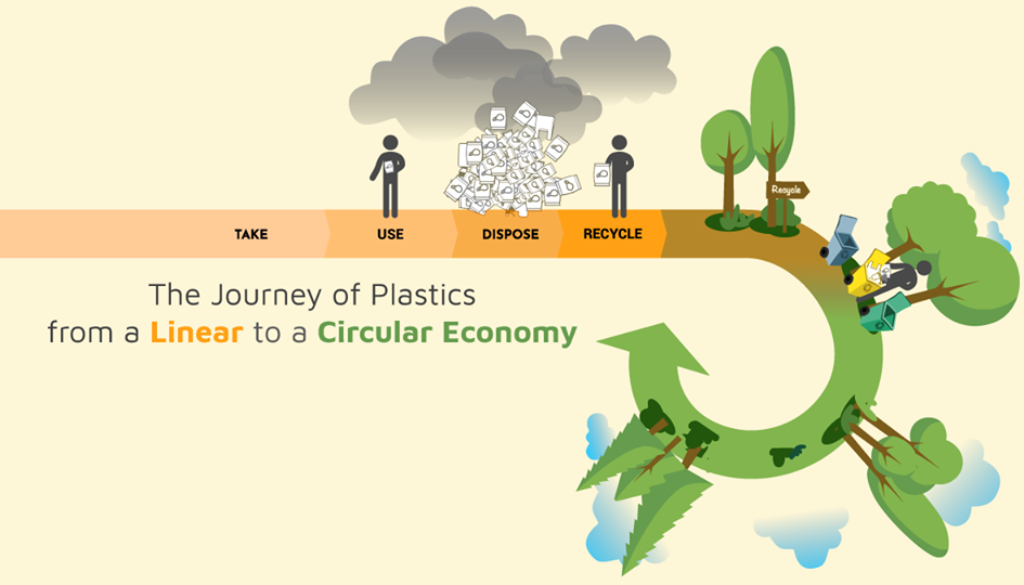Adopting a circular economy in El Salvador would generate more revenue
Table of Contents
Contact the Central American Group to discuss initiating business operations in El Salvador.
Companies that put elements of a circular economy in El Salvador into practice could generate more revenue.
Adopting a circular economy in El Salvador would result in greater profits by creating new products and sources of income. Experts opine that companies that implement this approach could generate 30% more revenue.
Additionally, the movement towards a circular economy would reduce company risk. This is because greater resilience would be the byproduct of decentralizing the supply chain. Problems with centralized supply chains have been visible recently due to the global coronavirus pandemic. Using raw material recycling and recovery techniques reduces exposure to increasingly volatile prices in the market. This point was made by Alba Meléndez, coordinator of the EcoAmigos program, at the Circular Economics Forum, which was recently organized by the Salvadoran Association of Industrialists (ASI).
This model of a circular economy in El Salvador would require that the country’s manufacturers adopt a new concept of waste where virtually “nothing is leftover,” as well as the maintenance of materials in circulation for as long as possible with the use of renewable elements or raw materials.
Now, in this time of post-pandemic recovery, Meléndez points out that it is an opportune moment to introduce a production model that not only serves to benefit a vulnerable natural environment but also allows for cost savings and clean economic growth.
“The current linear model of production is unsustainable over the long term. Now is the right time to begin to reduce, reuse and recycle,” She explained.
A circular economy in El Salvador would be the source of new products
The idea is to produce using biodegradable materials, and create new products that can be reused by the same producer or other industries. The result of this is that those products remain circulating in a long supply chain for a prolonged period of time.
Today there are only a limited number of companies that apply the model of a circular economy in El Salvador.
“The implementation of circular economies allows for more significant economic growth, job creation and provides an opportunity for a greater exercise of creativity and innovation. This model also decreases carbon dioxide emissions by 50% due to leaving organic waste out of landfills. It generates significant savings in the area of expenditures for raw materials. Economies of scale will result because things are designed to be utilized repeatedly, which results in increased productivity.”
The Salvadoran environmental scientist Valeria Emondi recently asserted that while there are major industrial initiatives underway, the country is notedly behind in implementing this strategy. While interest in creating a circular economy in El Salvador has arisen in recent times, Europe started the process 30 years ago. These nations applied it in locales as simple as supermarkets. For example, no bags are given automatically with purchases, and if you want one, you are charged for it. To take steps such as this is a societal decision that changes both the product and the consumer.
Alba Meléndez explains that although there is a new waste management and recycling promotion law in El Salvador, it has been inadequately enforced thus far. For such an initiative to succeed, the Ministry of the Environment and municipalities must coordinate efforts to put the appropriate infrastructure into place. For example, in a municipality in Guatemala, investments have been made in more trucks, some of which collect organic materials, and others retrieve inorganic items. To create a circular economy in El Salvador, steps and initiatives like this have to be undertaken.
Education and cooperation are key
“The biggest challenge (in El Salvador) is the area of the education of the populace. The national and local governments can install the infrastructure needed to create a circular economy, but the collaboration of the citizenry is of paramount importance. If the people are not conditioned to reduce, reuse and recycle, any attempts to create a circular economy in El Salvador will fail.
“The citizens can learn to separate the majority of waste to collect and transport as of now we have little of the technology required to be able to reuse discarded materials. We need equipment such as thermo vaporizers and biodigesters. These items are obtained as a result of public policies and private investments,” she added.
Although it is of the utmost importance that individual entrepreneurs make an effort to develop circular economies in their operations, setting guidelines must be part of a comprehensive national policy that promotes these changes.
“It is necessary to create special lines of credit for the acquisition of new and expensive technology that comes from Europe and the United States, as well as to dedicate funds to be utilized to teach workers to operate it,” Edmondi asserted.
Public-private partnerships have incredible potential to pool resources to develop a circular economy in El Salvador. Initially, programs could be designed for specific industries such as textiles and biomedicals. Above all, however, leaders must devise a national strategy to effectively communicate the positive consequences and benefits of this type of economic transition.”
Contact Us
Please use this form to contact us and we will respond as soon as possible:





